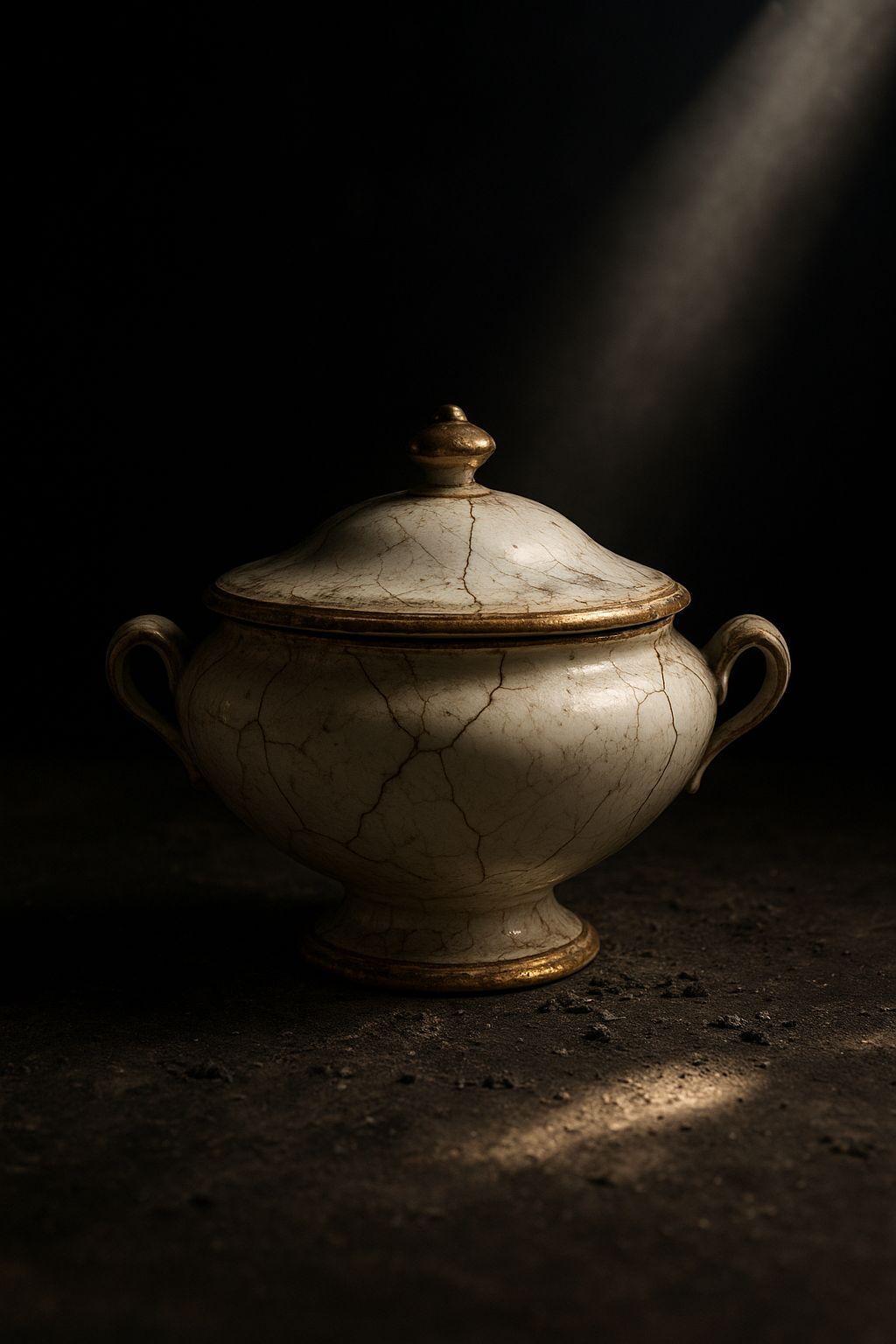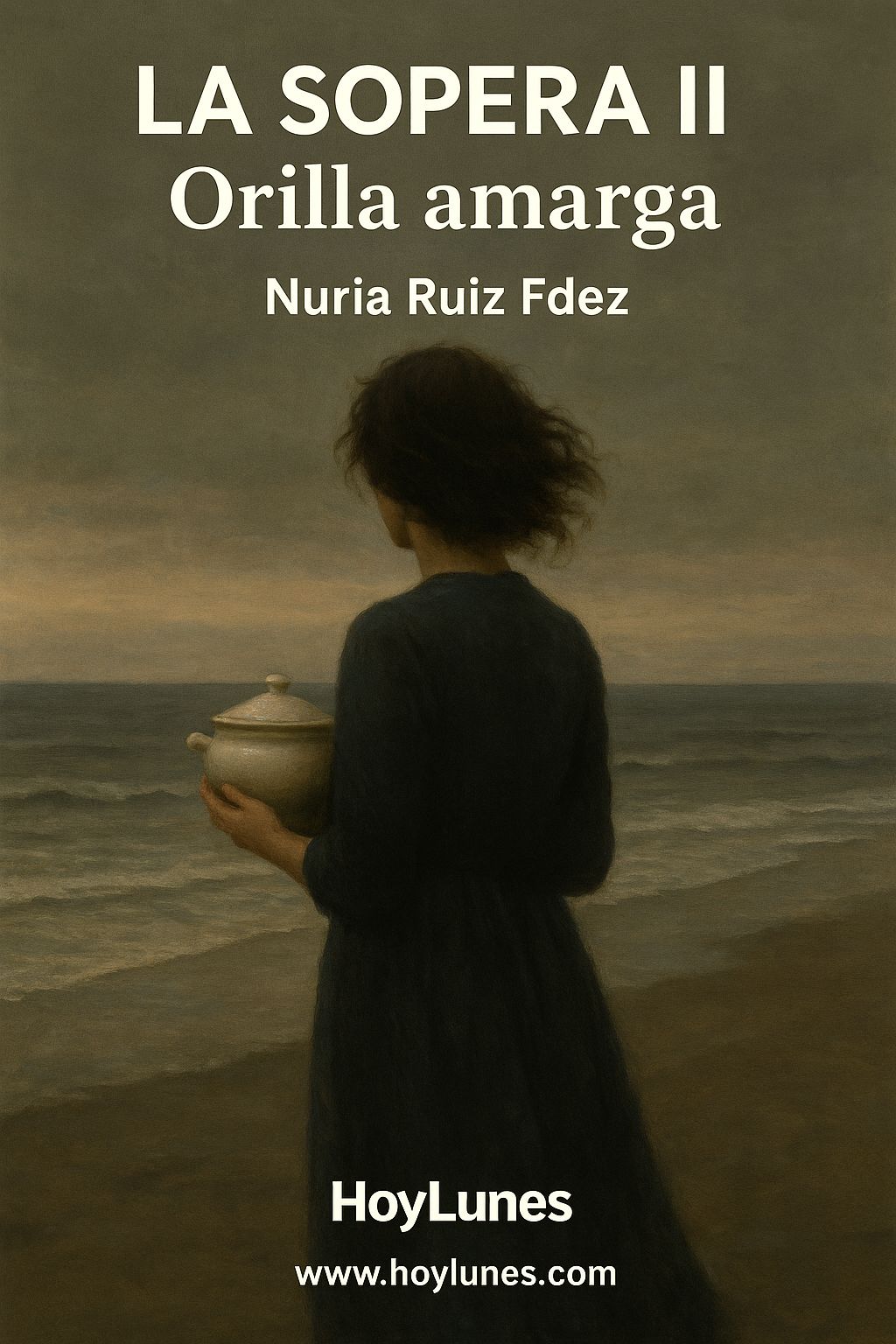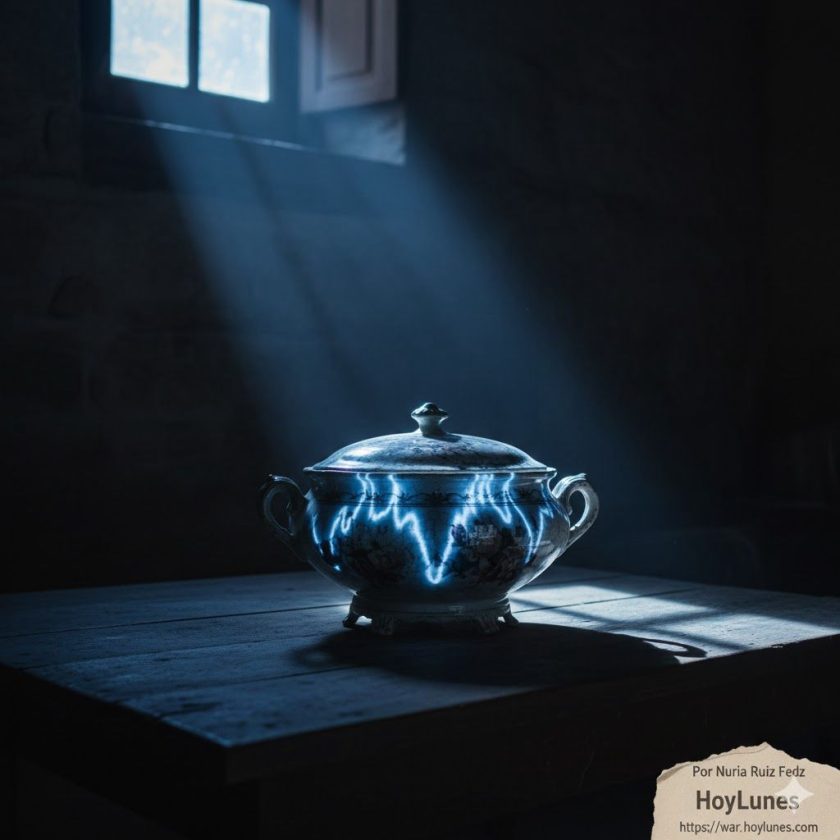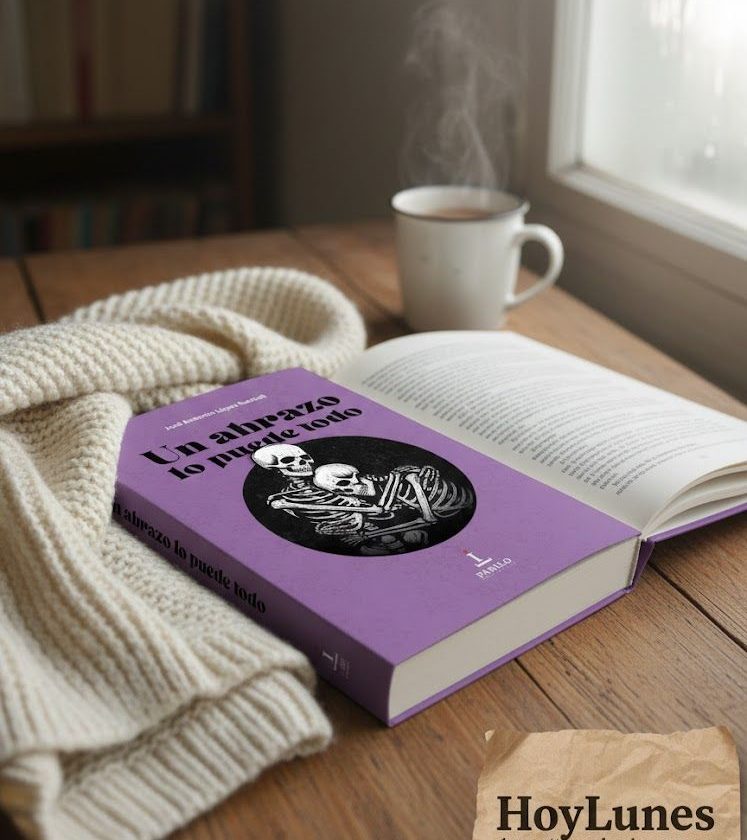Between ash and salt, Margarita learns that pain is not always buried: sometimes it remains standing, watching from a soup tureen.
By Nuria Ruiz Fdez
HoyLunes – Margarita Lafuente and her family left León as one abandons a wounded animal, with sores on their hands and scars in their hearts that still festered. When they arrived in Algeciras, it felt to her like landing in a foreign country. She said nothing: she gripped the suitcase tightly with one hand and, with the other, pressed the soup tureen against her chest. As if with that gesture she wanted to feel the support she lacked to keep moving forward.
The station smelled of salt and burnt oil. The westerly wind was so dense it seemed chewable, and Margarita, while carrying the suitcase, thought it would be hard to adapt to these new winds.
The distant cousin had kept his promise: a whitewashed little house, with low ceilings and modest furniture, in Guadarranque. On the patio walls, the night-blooming jasmine climbed toward the sky. Poor but dignified.

There would rest the remnants of the lives they carried with them.
The first thing she did upon entering was go to the kitchen and place the soup tureen on a shelf. There was no need to look at it much: from there it would watch like a silent witness.
Her husband began to fade from the very first day. Breathing was hard for him; the humidity scratched his lungs. Margarita thought it was the stress caused by losing their house in the fire; that grief consumed him—he was a man of few words—and that it would all pass with the sea breeze and time. The doctor, after months of waiting and spaced-out tests that only prolonged the agony, gave them the results. Margarita and her husband, hand in hand, silent, awaited a miracle that never came: metastasis.
He did not want to spend his last days in the hospital. Sitting by the windows, with the sun crashing down on the glass, Mariano remembered his life in Palacios de Jamuz, his village and that of his ancestors, surrounded by animals and the green of the mountains. Nothing like the foam of the waves and the smell of saltpeter. Now, that village was desolate from the fire, and he was bidding farewell to all his memories.
At night he sweated and trembled, and she, with a damp cloth, cooled his forehead. One dawn she knew: the end had come. She sat by him and took his bony hand.
—Don’t leave me —she begged.
He tried to smile, a faint, broken gesture.
—Take care of Lucía… —he whispered in a thread of voice—. And don’t forget to live, even if it hurts.
Then, silence. Absolute silence. Margarita squeezed that hand until she felt the cold in her own, and cried with a contained rage, the same that had always sustained her.

The funeral was poor. Lucía, the daughter, at sixteen years old, could not understand why life was so cruel to them. Her father had been her lifeline, her haven of peace, her hero. She was confused, hated the world, hated herself for not having spent more time by his side, hated her mother because she was always strong and distant with her. She did not cry: she bit her lips, twisted her hands. Days earlier she had begun to clash with her mother over everything, as if grief had turned into gunpowder. As they left the cemetery, she exploded:
—Enough, mother! You brought us to this damned place to watch him die!
—Lucía, show respect! —Margarita replied, impassive on the outside, burning on the inside.
—Regard? For what? For this lime grave, for this sea I don’t want? I won’t stay here, rotting like you.
Arguments became routine. In the kitchen, in the patio, even on the beach.
—Here we have a roof —Margarita said resignedly—, even if it’s borrowed.
—A roof full of ghosts! —Lucía shouted—. You don’t understand anything, mother. I don’t want to end up like you, clinging to a soup tureen as if all of life were in there and nothing else existed…
One night of dead calm, a slammed door broke the sound of the sea. Margarita rushed, frightened, into the living room and found on the table a folded piece of paper, with her daughter’s trembling handwriting:
“I’m going to look for my future. Don’t follow me. Leave me alone”.
Her heart dropped to the floor. She ran to the beach, asked the neighbors, but no one had seen her. On the bitter shore she found only the deserted sand, the waves swallowing the footprints, and her red scarf, soaked and half-buried. She picked it up with trembling hands, pressed it against her face, and stayed there, eyes lost in a landscape she no longer recognized, and allowed herself to cry, alone, calmly, for her daughter, for her husband, for her lost home, as if those tears were a balm she had never wanted to use to soothe her fears. But Margarita could take no more: “if Lucía has also gone, there is no reason to go on.”

She breathed in the smell of salt and tears, and reclined until the leaden dawn tinged the horizon.
She returned home in the morning, with swollen eyes, cracked lips, and a broken soul. The soup tureen was still in its place, still on the shelf, immune to suffering. She looked at it as one looks at a secret that has been buried for far too long. She then knew that this object was the only thing that had not abandoned her. But her daughter, her own blood, was out there somewhere, who knows where, and that uncertainty hurt more than any fire.
To be continued…

#hoylunes, #nuria_ruiz_fdez,



